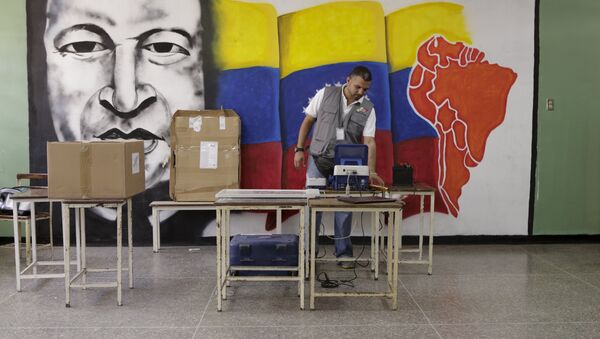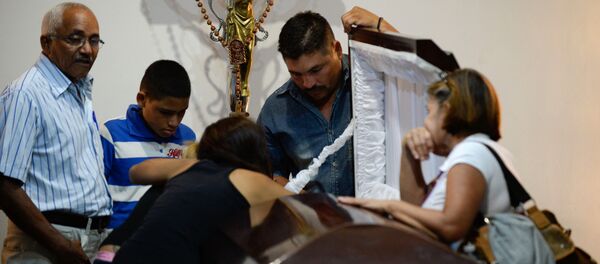MOSCOW (Sputnik) – The parliamentary elections in Venezuela will be held on Sunday, December 6.
The structure of Venezuelan parliament
The unicameral parliament of Venezuela – the National Assembly – consists of 167 lawmakers, with 113 of them elected personally, 51 elected from party lists and the remaining three elected from representatives of the Venezuelan indigenous people.
The lawmakers are elected in federal districts established by legislation, with a minimum of three lawmakers per state. The lawmakers have one deputy each, elected at the same time and for the same period.
Indigenous peoples of the Bolivarian Republic of Venezuela elect three lawmakers, keeping to tradition and in accordance with the provisions of the law on elections.
Requirements for candidates
According to the law, every candidate must be Venezuelan by birth, or, in case of naturalization, a national resident staying in the country for at least 15 years before the parliamentary election date; be aged above 21 years and reside for at least four consequent years in the electoral district where he or she stands for election.
Political parties, electorate groups, indigenous communities or organizations can field candidates for elections; self-nomination is also possible.
Self-nominated candidates must provide signatures of 5 percent of the voters of the corresponding electoral district.
In 2015, the National Electoral Council of Venezuela approved provisions making it obligatory for parties to nominate women as lawmakers in elections. The amendments stipulate a 50-50 balance between both sexes, with at least 40 percent in exceptional cases.
Lawmakers can be elected for a maximum of three terms.
The voting process
The elections in Venezuela are held by the National Electoral Council. The polls open at 6 a.m. local time (10:30 GMT) on election day. The polling stations remain open as long as there are people wishing to vote.
The Venezuelan electoral system is completely automated.
A voter produces an identity document at the polls, with subsequent electronic fingerprinting: a voter touches a fingerprint device with their right thumb. The device either issues a voting permit, or signals that the fingerprint does not match the one registered in the database.
After identification is completed, a polling station employee switches on the electronic voting device equipped with a tablet PC, which shows candidates’ photographs on its screen. The voter picks a candidate, receives a printout, similar to the one printed by ATMs, and puts it into the ballot-box. Thus, the fact of voting is recorded.
Afterwards, the voter signs a register to confirm that he/she has voted and leaves his/her fingerprints near the signature. Finally, the voter has a little finger marked with indelible ink to avoid repeated voting.
Various public events and alcohol sales are prohibited on election day.
The National Electoral Council has to publish the election results in the electoral newspaper within 30 days after the vote.





